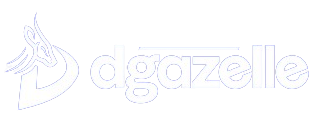Ecommerce Link Building in 2025: What’s Working and What Isn’t.

Getting people to visit your online store is half the battle. The other half? Convincing them to buy. But before the sales even happen, you need visibility, and that is where link building comes in.Link building is not new. But in 2025, the game has changed. If you are running an ecommerce business and you’re wondering why your beautifully designed store is barely getting traffic, or why Google seems to be ignoring your site, this post is for you. We are diving into what is working in ecommerce link building in 2025, what is not, and how you can fix it, with or without an in-house SEO team Let us get into it. Why Link Building Still Matters; Maybe More Than Ever You may have heard it before, backlinks are like votes of confidence from other websites. When authoritative sites link to your ecommerce store Google takes that as a sign that your site is trustworthy and relevant. But here’s the thing, not all backlinks are created equal, and many of the old strategies no longer work. Worse, they can hurt your ranking if Google thinks you are trying to game the system. So, what works in 2025? What’s Working: The Link Building Tactics That Still Drive Results 1. Digital PR & Thought Leadership This is by far one of the strongest strategies in 2025. Instead of chasing shady directories or begging for links, ecommerce brands are now building relationships with journalists, bloggers, and industry websites. You create content worth linking to, think data studies, expert insights, product innovation stories and pitch them to reputable publications. Example: Let’s say you run an ecommerce store that sells eco-friendly fashion in Nigeria. You publish a detailed blog post with research on “How Gen Z in Lagos Is Driving Sustainable Fashion.” Pitch that to lifestyle and business publications. They link back to your post. Boom quality backlinks. How Dgazelle Helps: At Dgazelle, we help ecommerce businesses craft compelling stories around their products and get them in front of the right eyes. This is not just PR it’s traffic fuel. 2. Content Marketing That Educates and Converts You need more than product pages. Content that answers real questions, like “How to choose the right laptop for remote work in Nigeria” or “The best skincare routine for harmattan weather”, tends to attract links from blogs, YouTubers, and news outlets. Plus, when users find your content useful, they stay longer, trust you more, and are more likely to buy. Pro tip: Create in-depth guides, how-to articles, and interactive tools, not just ads. Dgazelle’s Edge: We pair solid SEO strategy with conversion psychology. Meaning: we do not just write content to get clicks. we write it to get customers. 3. Influencer Collaboration with Real Authority Forget bots and fake followers. In 2025, micro-influencers who are seen as authentic voices in their niche carry serious backlink power. If a respected fitness coach links to your ecommerce site while reviewing your gym gear, it matters more than a random directory listing. How to leverage this: How We Support You: Dgazelle helps ecommerce brands identify credible influencers in your industry and create link-worthy content together. 4. Niche Directory Listings (Yes, They Still Work If Done Right) While spammy directories are a thing of the past, hyper-relevant directories are thriving Example: A Nigerian ecommerce brand selling natural hair products could benefit from being listed in African beauty and wellness directories. Tech gadget sellers can target listings on local review blogs or tech comparison site . These targeted placements still deliver SEO value and drive traffic from people who are actually ready to buy. What’s Not Working (and Might Get You Penalized) Let us save you some trouble by pointing out what to stop wasting your time (and money) on. 1. Buying Cheap Backlinks You have seen the ads: “Get 5,000 backlinks for $20.” Sounds tempting, right? But it is a trap. Google’s algorithm in 2025 is smarter than ever. Low-quality or irrelevant backlinks can destroy your ranking, or even get you blacklisted. 2. Guest Posting at Scale With No Value Back in the day, guest blogging was the holy grail of link building. Now? Only if it is done with purpose. Posting dozens of low-effort articles with keyword-stuffed bios and fake author names is out. It’s seen as manipulative. Stick to writing for high-quality websites where your insights genuinely belong. 3. Broken Link Building (Mostly Outdated Now) Finding broken links on other people’s sites and pitching your own as a replacement used to be a solid hack. But today, many websites have automated checks that fix broken links faster than you can find them. It is not completely dead, just very time-consuming with low payoff in ecommerce. Practical Steps to Start Building Strong Links Today If you are a Nigerian ecommerce founder, here is your starter checklist: Why This Matters to You; the Business Owner You can have the best products, competitive pricing, and fast delivery. But if your site is invisible on Google, you are fighting an uphill battle every day. Great link building: And if you do not know where to start, that is where we come in. At Dgazelle, We Build More Than Websites. We Build Ecommerce Growth Machines. Dgazelle is not your average design agency. We are a team of Nigerian creatives, marketers, and strategists who understand the realities of running an ecommerce business in this country. From mobile optimization to SEO copywriting, content strategy, and smart link building, we are your all-in-one digital partner. When we design your store, we do not just focus on aesthetics, we build it with strategy, SEO, and sales in mind. You do not need to do it alone. Let us help you rank, scale, and sell more. Ready to Build an Ecommerce Store That Actually Gets Found Online? If your competitors are outranking you, even with less impressive products, chances are they are investing in better strategy. Link building is just one piece of the puzzle, but it is one you
Proven Smart Website Design in 2025: How to Turn Your Website Visitors into Paying Customers & Raving Fans

In today’s digital world, your website is often your first and most important salesperson. But here’s the thing: a good-looking website alone isn’t enough. If it doesn’t guide visitors toward action, you’re leaving money on the table. This blog shows you how to turn casual clicks into committed customers with smart, SEO-friendly website design in 2025. Whether you run an online store, service business, or personal brand, these tips will help you convert traffic into tangible results. Why Smart Website Design is Crucial in 2025 First impressions happen fast. Studies like this Stanford credibility study reveal that 75% of users judge a company’s credibility based on its website design. In 2025, competition is stiffer than ever, and users are more impatient. A slow, clunky, or confusing site won’t just lose visitors, it’ll lose revenue. At Dgazelle Digital Agency, we believe design is more than pretty visuals. It’s a business tool that guides visitors toward booking a call, purchasing a product, or signing up for a newsletter. Top 6 Design Tactics That Turn Clicks into Conversions Design isn’t just about looking good; it’s about guiding your visitors toward taking action. These six essential tactics focus on usability, clarity, and persuasion to help you turn casual website visitors into loyal customers. By applying these strategies, you’ll create a smoother user experience that boosts your conversion rates and drives business growth. 1. Clear and Consistent Navigation Your menu should be simple, not overwhelming. Users should know where to go without guessing. Limit navigation to 5–7 core items, and make sure your contact or CTA page is always visible. Example: Apple keeps its site navigation minimalist and focused, helping users find exactly what they need. 2. Mobile-First Design With over 60% of traffic now coming from mobile, your site must be thumb-friendly. Use responsive templates, test regularly, and avoid cluttered layouts. Run a quick test with Google’s Mobile-Friendly Test. 3. Speed is Everything If your site takes more than 3 seconds to load, users bounce. Compress images, eliminate unnecessary plugins, and optimize code. Use PageSpeed Insights to monitor performance. 4. Strategic CTAs (Calls-to-Action) Your site should guide visitors step-by-step. Use buttons like: Place CTAs above the fold and at the end of each section. Tip: Make CTAs a contrasting colour so they stand out from the rest of the design. 5. Trust Builders Social proof can boost conversions by up to 34%. Include: 6. SEO-Optimised Content Design and SEO must work hand-in-hand. Use your primary keywords naturally in: For example, if your focus keyword is “mobile-first design,” a well-optimised sentence could be:“Implementing a mobile-first design ensures your website performs perfectly on smartphones and tablets, improving user experience and boosting SEO rankings.” Beyond keywords, make sure your content is clear, useful, and easy to read. Google rewards sites that provide real value to visitors, so combine SEO best practices with great content to maximise your site’s performance. To learn more about combining SEO with smart design, check out Moz’s Beginner’s Guide to SEO. Image Source: Freepik Must-Have Pages for Maximum Conversion Your website isn’t just a digital brochure; it’s a sales engine. However, to convert visitors into leads or customers, certain pages must be present and built with a specific purpose. These core pages not only inform but also guide users through your sales funnel seamlessly. Whether you’re launching a new website or optimizing an existing one, start by getting these essentials right. Avoid These Common Mistakes Even with the best intentions, many websites lose potential customers due to simple design oversights. These mistakes can create friction in the user experience, reduce trust, and prevent conversions. By identifying and avoiding them early, you’ll make a smoother, more engaging site that delivers better results. Here are some common pitfalls to steer clear of: Enhance Engagement with Visual Hierarchy Visual hierarchy is the art of guiding your visitors’ eyes toward the most important elements on each page. By strategically placing headings, images, buttons, and whitespace, you can increase user engagement and improve conversions. Tip: Use larger fonts and bold colours for key messages, and keep secondary information less prominent. Check out Canva’s guide to visual hierarchy to better structure your layout. Integrate Live Chat and Chatbots Customer support no longer happens only through email. Live chat or AI-powered bots can answer questions instantly, remove buying hesitations, and boost trust. Tools like Tidio or LiveChat are easy to install and mobile-friendly. Want Your Website to Convert Better in 2025? Smart website design is no longer optional; it’s essential. To turn your traffic into sales, you need a conversion-driven approach. At Dgazelle Digital Agency, we don’t just design. We build websites that sell. 👉 Book a Free Website Audit and find out how to make your site work harder for your business.
Link Building Techniques: 6 Effective ways to Build Links, the Right Way

You’re probably here because you’re looking to strengthen your website’s online presence and have heard that link-building is one of – if not the most – important activities you can take on. In this post, I’ll explain the top link-building strategies that are used today. I call these six factors – “integral link-building techniques.” Why? Because that’s precisely what they are. Using the wrong technique at the wrong time will only hurt your link-building campaign. That’s why tailoring your link-building efforts to fit your specific audience and circumstances is so important. What is link building? Link-building is the process of gaining links to a website. The links are placed on other sites, and they point back to your site. Link-building is also the process of acquiring backlinks for your website. Backlinks are links from other websites to yours. Backlinks can be acquired through guest posting, content marketing, social media, and other strategies. Link building is the process of creating connections between your site and others. These links are a crucial part of how search engines determine how relevant your content is to their users. Link building can be done by both humans and machines. The most effective link building is done by humans. This is because they can help you create natural links that will be more likely to pass link juice to your website. The goal of any link building strategy should be to get links from high quality websites in order to boost your rankings in search engines. Why is link building important? Links are a very important part of SEO. They’re also one of the most difficult parts of SEO because they take time and effort to build up. Here are some reasons why you should invest in link-building: Links make it easier for Google to crawl and index your site’s content. This helps Google determine how valuable your content is and how relevant it is – before driving quality users’ searches to your website, which can improve its ranking in search results. Link-building helps make it easier for your potential audience to find you on the web. It can also help them find useful information about products or services that they’re looking for before they even reach out to you with questions or inquiries about what you offer. What are the types of link building? It’s not just about getting links, it’s about getting good links. The types of link building you use can help you to achieve your goals and improve the overall quality of your sites. The most effective link-building methods will be relevant, authoritative, and contextual. There are many different types of link building, but generally, here are how they can be classified: The Good Links The first type of link building we’ll discuss is good link building. This type of link building comes from editorial links that have been earned by creating awesome content on your website. It’s not a secret that Google looks at the quality of a website when determining ranking, so it only makes sense that you’d want to earn editorial links from other websites that recognize your SEO-friendly content as being valuable enough to share with their audience. Organic link building takes a lot more time and effort, but it also means the links you do get are more valuable because they are more difficult for your competitors to replicate There are many ways to build these types of backlinks. Some of these methods are: Guest blogging link building: This is probably the easiest way to earn editorial links for your website, as long as you know how to do it right. Guest blogging involves writing articles for other people’s websites in exchange for them linking back to yours or mentioning you somewhere in their content. To play it safe, any guest blogging should be done with the intent of building your brand and reaching a larger audience – rather than building links. Building links is simply a by-product of doing a great job at that. Editorial Link Building: The most obvious example of a good link is when, unbeknownst to you, a journalist (or contributor, or blogger) is so amazed by you, your company, or your products or services that they take the initiative to write an article about you and link to your website. Ugly Link Building: These links are simple to create in huge quantities, but they won’t have much of an effect on your organic ranking, if any. It is a waste of effort to spend time creating these kinds of links, because they will never produce much income or energy income from an investment. Some include: Guest Posting at Scale: Guest posting is one of the most effective ways to build links, and it’s also one of the most abused. Unsolicited pitches are annoying, This can lead to spammy links and poor quality content on your website. Generating links from irrelevant websites: No matter how easy it may be to acquire a link, don’t waste your time if it isn’t relevant. One of the biggest mistakes website owners make is getting links from irrelevant websites. The idea behind getting links from relevant websites is that people will trust you more if they see that other sites are linking to you. The idea behind getting links from irrelevant websites is that people will trust you more if they see that other sites are linking to you. The problem with this is that Google is now very good at figuring out what’s relevant and what’s not, and if they see that a site that has nothing whatsoever to do with your business is linking to you, they’ll consider it a bad sign and penalize your website accordingly. The Bad Links Bad links can harm your website’s search engine rankings and your reputation as an online business. Ultimately, they can cost you money. A bad link is one that is not related to the content on your website and does not point to your site.

